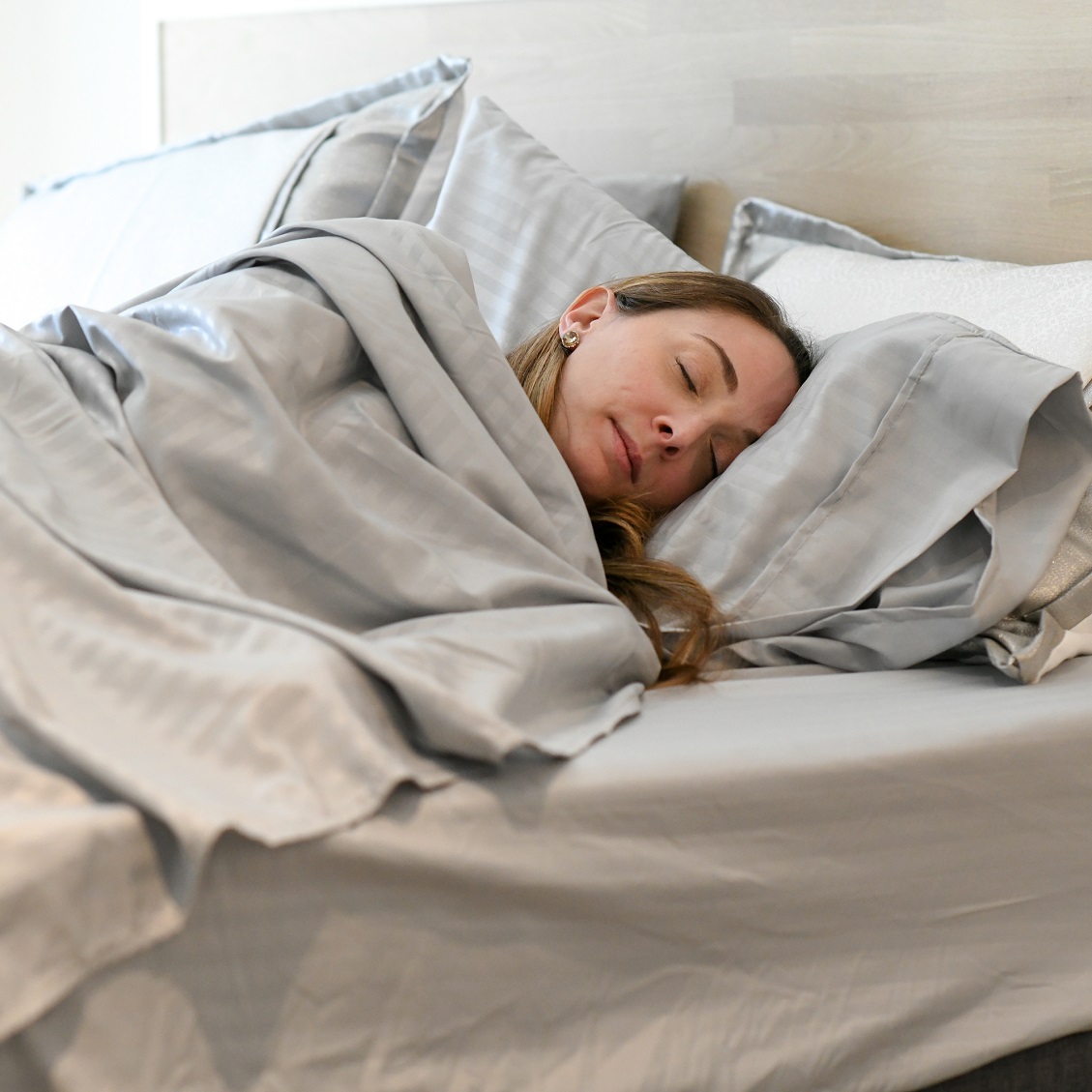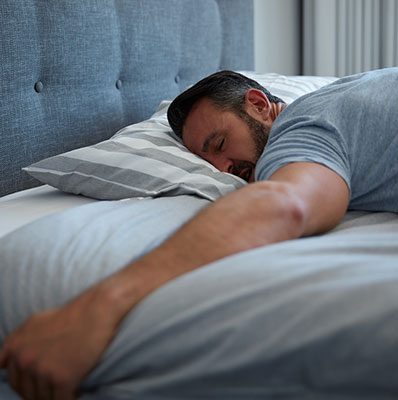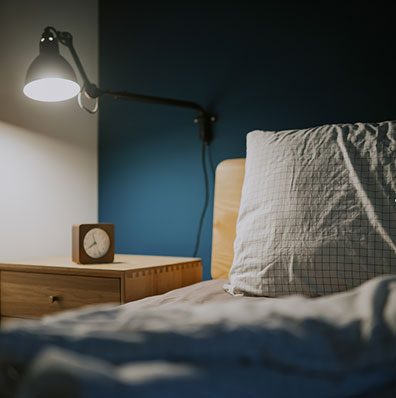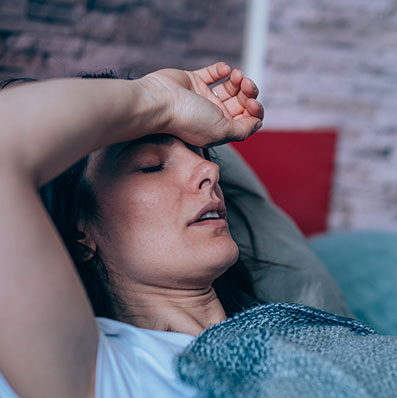Insomnia and Anxiety: A Vicious Cycle and How to Break It
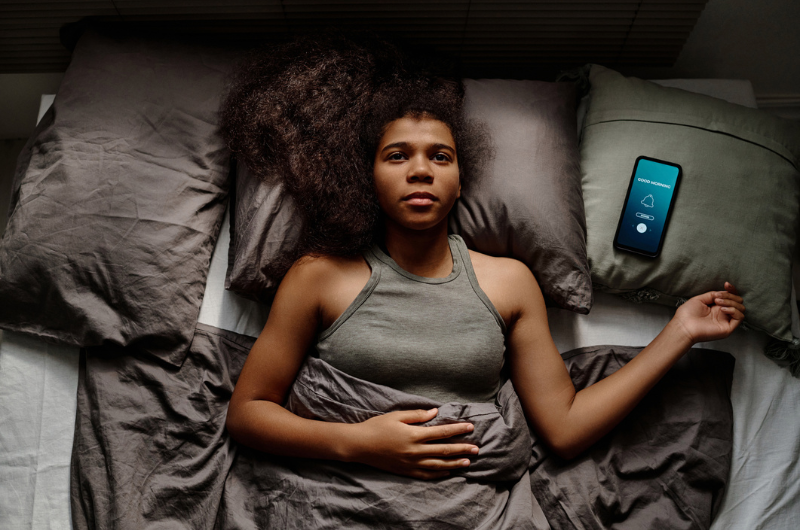
July 24, 2025
Tossing, turning, mind racing? Checking the clock, calculating dwindling sleep hours? Sound familiar? When anxious thoughts take over at night, it can be hard to shut them off.
“It can be a vicious cycle,” says Matthew Scharf, M.D., Ph.D., a neurology and sleep medicine specialist in Neptune, New Jersey. “A common pattern is that people don’t sleep well, have anxiety about not sleeping well, which then makes it harder to sleep, which makes the anxiety worse.”
How Anxiety Disrupts Sleep
Anxiety is the most common behavioral health disorder. People may have worrisome thoughts any time, including at bedtime or overnight.
“Everybody has a little anxiety here and there, and that’s not necessarily problematic,” Dr. Scharf says. “I see patients when it interferes with their sleep.”
If you can’t sleep, you may think about things you’re most worried about. Or you may worry that you aren’t asleep and you’ll be overtired the next day.
“A lot of my patients don’t have a lot of anxiety in general,” Dr. Scharf says. “When they go to bed – the worst possible time to have anxiety – that’s when it happens.”
Stress may worsen anxiety, making it harder to fall asleep or stay asleep.
Difficulty falling asleep or staying asleep are also symptoms of some anxiety disorders. Seeking treatment – medication and psychotherapy, including cognitive behavioral therapy – may help.
“Sometimes, if you treat the anxiety, the sleep will follow,” Dr. Scharf says.
How Insomnia May Intensify Worries
Insomnia is a common sleep disorder. People who frequently have trouble sleeping may have:
- Sleep initiation insomnia, difficulty falling asleep
- Sleep maintenance insomnia, difficulty staying asleep. This includes people who awaken in the middle of the night or too early in the morning
- Sleep misperception insomnia, when someone believes they aren’t sleeping. A sleep study may confirm that they slept, but they feel that they were awake all night
If you have insomnia plus anxiety, it may intensify your worries. More time awake in bed may mean more time to focus on anxious thoughts.
Even if your anxiety gets better, you might still have trouble sleeping. This could be because you've developed unhelpful ways of thinking or acting about sleep, or there might be other reasons why you can't sleep.
“We may consider looking for another cause,” Dr. Scharf says. “Insomnia can be related to conditions like sleep apnea and narcolepsy.”
7 Tips to Break the Anxiety-Insomnia Cycle
You don’t have to live with insomnia and anxiety. There are ways to escape the cycle.
To combat insomnia and anxiety on your own:
- Limit your time in bed: If you can’t fall asleep after 20 minutes, get up and do something relaxing somewhere else. Read a book; don’t look at your smartphone, which emits activating light.
“The goal is sleep efficiency, a fancy way of saying that when you’re in bed, you’re asleep,” Dr. Scharf says. “The more time you spend awake in bed, the harder it may become to sleep.”
- Don’t watch the clock: Constantly checking the time may make anxiety and insomnia worse. Turn your clock away so you can’t see the time when you’re in bed.
- Avoid sleeping during the day: If you feel that you have to nap, limit it to 20 to 30 minutes. Too much daytime sleep can make it harder to sleep at night.
- Exercise regularly: Being physically active may help ease insomnia and anxiety. Avoid doing vigorous exercise for three hours before bedtime as this activity may make it harder to sleep in the immediate period after exercise.
- Maintain a consistent sleep schedule: Wake up and go to sleep at roughly the same times every day. Staying awake or sleeping later on weekends makes it harder to fall asleep on weekdays.
If you’re still experiencing insomnia and anxiety:
- Talk to your doctor: Try your primary care physician, or make an appointment with a sleep specialist. Medications play a limited role, so don’t expect a prescription to eliminate your insomnia.
“It doesn’t tend to work unless you address the underlying issues,” Dr. Scharf says.
- Seek CBT-I: Cognitive behavioral therapy for insomnia helps people change their thoughts and habits about sleep. Seek a provider who specializes in CBT-I to improve your sleep and lower anxiety levels.
“It’s a relatively intense short-term program, three to six sessions typically, and then people usually do better,” Dr. Scharf says. “It’s the gold standard of treatment.”
Next Steps & Resources
- Meet our source: Matthew Scharf, M.D., Ph.D.
- To make an appointment with Dr. Scharf or a doctor near you, call 800-822-8905 or visit our website.
The material provided through HealthU is intended to be used as general information only and should not replace the advice of your physician. Always consult your physician for individual care.


